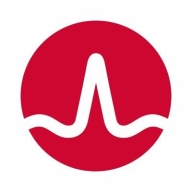

Symantec Endpoint Security and Trend Micro Deep Security compete in the endpoint and server protection market. Symantec appears to have an upper hand in endpoint protection, offering a wide suite of features, while Trend Micro stands out in server security and integration capabilities.
Features: Symantec Endpoint Security includes antivirus, anti-spyware, firewall, intrusion prevention, application and device control, and proactive threat scanning. Trend Micro Deep Security emphasizes virtual patching, integrity monitoring, and layered protection for Windows, Linux, and cloud workloads.
Room for Improvement: Symantec faces criticism for high resource consumption, complicated management, and inadequate zero-day threat detection. Users suggest improvements in reporting and malware remediation. Trend Micro, while feature-rich, is deemed overpriced, with noted areas for policy management, UI design, and licensing complexity to be refined.
Ease of Deployment and Customer Service: Symantec is mainly deployed on-premises. Users report mixed experiences with support, noting responsiveness issues post-Broadcom acquisition. Trend Micro supports hybrid and cloud deployments and is viewed as manageable, though support response times and integration help could improve.
Pricing and ROI: Symantec is seen as moderately priced, slightly higher than some competitors, with ROI perceived in data protection and reduced downtime. Trend Micro is considered expensive, justified by its advanced features, although pricing can be a barrier for some. Users acknowledge security benefits and potential ROI in larger or cloud-integrated environments.
Symantec Endpoint Security filled gaps in our toolset, particularly with the ability to control network firewall on hosts remotely, which was greatly appreciated.
The management console is very useful and easy to operate, allowing policy deployment in a minimal amount of time.
It adds value by providing centralized control over servers and endpoints.
If the customer is interested in technical capabilities, we demonstrate the tools, setup, implementation, and their working.
In some cases, it rates as high as ten out of ten, while in others, it can be as low as eight.
There is no support in the German language, which is a problem for many public tenders.
Whenever I raise a ticket, whether critical or high priority, their team responds immediately, often over calls, and works towards closing the request with the highest priority.
They have very professional engineers, and they often respond effectively.
A dedicated support engineer will come in within three hours.
Symantec Endpoint Security is quite scalable, and it is very important for large clients.
The scalability of the servers is good, as it requires computational powers.
Trend Micro Deep Security is highly scalable.
In most organizations, they are using a mix of these security solutions.
You can install it on a script basis for Linux and Windows.
I have encountered issues where I had to uninstall and reinstall the product on end users' computers to view the logs again.
Previously, we used to have multiple servers such as GUP servers and numerous servers for pushing updates, but we reduced it and transitioned almost 30,000 devices to CrowdStrike, which was easy to manage.
It has been extremely stable throughout our usage, with no major disturbances.
Trend Micro Deep Security is very stable and provides protection at all times without issues.
We believe that software works fine until it is patched, managed, or monitored by the IT teams.
Device management is not very good and I am not enabling it in my organization due to security reasons.
I would like to see improvements in the scanning part of the solution, specifically to enhance the CPU and hard disk usage during scanning and updates to prevent disruption during work hours.
It is cumbersome to use, particularly in handling firewall management.
User experience improvement is most crucial, along with enhancements in policy management and the accuracy of the IPS, IDS features for real-time protection.
Additionally, the product is overpriced, which makes it difficult to sell to many customers.
The user interface could be more user-friendly, as navigation sometimes requires familiarity with the console.
It seems to be half the cost or more affordable than other solutions.
The pricing is very low compared to other companies like SentinelOne and others.
I rate the pricing, setup cost, and licensing around nine out of ten.
We give a fair comparison of all the products, and give them clear insights of the products, which makes it helpful for the customer to make a final decision to purchase the license or product.
Trend Micro Deep Security is considered overpriced, which poses a challenge in selling it to many customers.
The pricing is moderate, not expensive or very cheap.
Symantec Endpoint Security offers great features such as reporting capabilities with a customized dashboard that pulls in EDR timelines, threat maps, and compliance metrics into one view.
Symantec Endpoint Security offers many valuable features, such as file explosion, application learning, DLP, injection detection, and EDR solutions for traffic control.
The incident response capabilities allow me to resolve authentication and support issues promptly, ensuring the system operates without downtime.
It has multiple security layers, including anti-malware, intrusion prevention, integrity monitoring, web reputation, application control, firewall, and log inspection.
Patching allows us to virtually patch servers without downtime, which is critical given our limited patching windows, and helps prevent servers from being exploited.
The IPS module offers virtual patches to resolve issues immediately, making it an excellent product that I recommend for anyone with servers.
| Product | Market Share (%) |
|---|---|
| Symantec Endpoint Security | 3.3% |
| Microsoft Defender for Endpoint | 7.8% |
| CrowdStrike Falcon | 6.7% |
| Other | 82.2% |
| Product | Market Share (%) |
|---|---|
| Trend Micro Deep Security | 38.5% |
| Juniper vSRX | 19.1% |
| Sophos Virtualization Security | 18.9% |
| Other | 23.5% |

| Company Size | Count |
|---|---|
| Small Business | 69 |
| Midsize Enterprise | 32 |
| Large Enterprise | 63 |
| Company Size | Count |
|---|---|
| Small Business | 36 |
| Midsize Enterprise | 24 |
| Large Enterprise | 46 |
Symantec Endpoint Security is a robust and reliable product that provides complete protection against viruses, malware, Trojans, and malicious files. It offers application and device control, ease of use in deploying and updating, a central control console, stability, scalability, auto-discovery capabilities, patch management, endpoint detection and response capabilities, intrusion detection module.
The Symantec Global Intelligence Network (GIN) provides threat intelligence and detection across endpoints, email, and web traffic. It has helped organizations reduce downtime, increase productivity, and improve security posture. Symantec Endpoint Security is easy to use, has a flexible administration, and offers more value than expected.
Trend Micro Deep Security is a comprehensive solution for endpoint security and server protection, which prevents ransomware attacks and unauthorized access attempts. Its valuable features include tracing back attacks, antivirus protection, endpoint detection and response, firewall-based solution, threat detection, predictive machine learning and AI monitoring, VPM, virtualization, and sandboxing.
The solution is easy to use, scalable, stable, and reliable, with good technical support. It has helped organizations perform well against malware and vulnerabilities, provide patching from the Protection Cloud, and improve their security posture.
Trend Micro Deep Security Features
Trend Micro Deep Security has many valuable key features. Some of the most useful ones include:
Reviews from Real Users
Trend Micro Deep Security stands out among its competitors for a number of reasons. Two major ones are its robust data and loss prevention feature and its patch management, which saves users money. PeerSpot users take note of the advantages of these features in their reviews:
One PeerSpot reviewer, a Senior Security Advisor at a healthcare company, writes, “DLP, Data Loss Prevention, and the complexity of how we manage the console and how this client, or this tool, will notify us when there is something going wrong within the server and endpoint, is good.”
Nadeem S., CEO at Haniya Technologies, notes of the solution, “Patch management is most valuable. The major selling point of Deep Security is that it is based on the cloud. Deep Security is for the servers and databases of data centers, and generally, for patch management, you have to shut down the machines, and then you have to restart them. So, they need shutdown time, which is a cost.”
We monitor all Endpoint Protection Platform (EPP) reviews to prevent fraudulent reviews and keep review quality high. We do not post reviews by company employees or direct competitors. We validate each review for authenticity via cross-reference with LinkedIn, and personal follow-up with the reviewer when necessary.